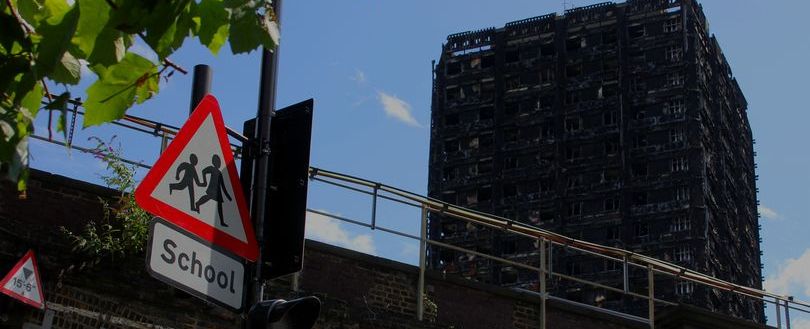
Grenfell Inquiry Told Government Had Ideological Aversion to Red Tape
Like it? Share it!
31 March 2022
Two coroners investigating earlier fire fatalities, the London fire brigade commissioner and the government’s own chief fire adviser were among experts who asked ministers to toughen scrutiny of fire risk assessors, according to testimony heard during cross-examination of Brandon Lewis, the first government minister to give evidence.
The inquiry heard ministers were urged to tighten rules on seven different occasions in the decade before the fire. It has since emerged that the fire risk assessor hired by the Grenfell Tower landlord to check the disastrous refurbishment works was not qualified to say the cladding complied with regulations.
Carl Stokes made up letters after his name to suggest professional registrations that either did not exist or he did not have. He wrongly concluded the combustible cladding was “fire rated” in a move an expert to the inquiry called “professionally reckless”.
Lewis, who was the minister responsible for fire safety from 2012 to 2014 and for fire services from July 2016 to June 2017, had been warned in writing about the competence of commercial fire risk assessors and how a lack of accreditation means “that in effect anyone can offer their services”.
The inquiry heard that a coroner investigating six deaths from the Lakanal House high-rise fire had warned ministers in 2013 to clarify uncertainty about the scope of inspections. In 2016, another coroner investigating the death of a firefighter, Stephen Hunt, found inadequate fire risk assessments contributed significantly to his death. They told the government to ensure fire risk assessors were properly trained and accredited.
Andrew Kinnear QC, counsel to the inquiry, said: “Nonetheless you remained content that intervention wasn’t required.”
“Yes,” said Lewis, adding: “We were always looking at how we could devolve power from central government.”
“It wasn’t just an ideological thing around devolving, it was also around what practically was making the difference,” Lewis said.
Lord Pickles, the former communities secretary; Lord Barwell, the former housing minister; Lord Wharton, a former junior minister; and Stephen Williams, a former Liberal Democrat junior minister are also due to appear to give evidence.
They face questioning over claims Conservative-led governments prioritised a “bonfire of red tape” over safety. In 2012, the then prime minister, David Cameron, resolved “to kill off the health and safety culture for good”.
The inquiry has already heard from an official in the department of communities and local government, Louise Upton, that there was a “political predisposition against further statutory intervention in this field”.
Lewis agreed in the sense “we would also look at [whether] you require statute to achieve what you want to achieve”. But he added: “We had a fairly strong record … of being very, very serious about the work we were doing to ensure fire safety.”
In July 2013, government officials tabled a proposal for a national regulator for fire safety, but an internal memo recorded that Lewis was “not keen”. He told the inquiry he didn’t want to “create another layer of regulation that doesn’t deliver anything meaningful”.
Ministers wanted a “self-governing sector”, a government memo showed. It warned: “The government’s policy of standing back to allow the sector to fill the space vacated by government is risky.” The risks included a threat to the government’s reputation for safeguarding public safety.
Related training
Related news
-
Fire Enforcement Notices Served on Hinkley Point C Contractors
25 February 2026
-
Call for Publication of BS 8414 Test Data
11 February 2026
-
New FIA Environmental Guidance Legislative Overview Published
03 February 2026
Related resources
-
Euralarm-FAQs-re-Environmental-Product-Declarations-EPDs.pdf 1
27 November 2025
-
Fire Risk Assessors Standard Scope of Services
07 August 2025
